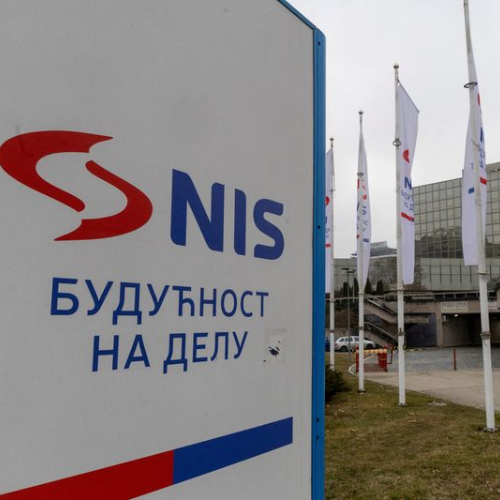The United States government has once again extended the sanctions waiver for Serbia’s largest oil company, NIS, by another 30 days. This means that, for now, the company can continue operating without facing penalties under US sanctions. The decision was confirmed by Serbia’s president, who thanked American officials for their understanding. The waiver had been set to expire at midnight, but with this extension, NIS has more time to adjust to the ongoing restrictions.
NIS plays a crucial role in Serbia’s energy supply. The company runs the only oil refinery in the country, producing around 4.8 million tons of refined fuel per year. Without this refinery, Serbia could face major disruptions in fuel availability, impacting businesses, transport, and daily life. The introduction of sanctions on NIS could have caused difficulties in securing crude oil imports, creating concerns about energy stability in the Balkan nation.
Why NIS Faces Sanctions Risk
The risk of sanctions on NIS stems from its ownership structure. The company is mainly owned by two Russian energy giants—Gazprom Neft and Gazprom. Gazprom Neft, a key player in Russia’s oil industry, originally had a controlling stake in NIS. However, due to Western sanctions imposed on Russia following its military actions in Ukraine, companies linked to Russia’s energy sector have been targeted by restrictions.
In January, the US Treasury’s Office of Foreign Assets Control (OFAC) imposed sanctions on parts of Russia’s oil industry, affecting companies like Gazprom Neft. To comply with these new regulations, OFAC gave the Russian firm 45 days to reduce its ownership in NIS. This period was extended once before, on February 27, to allow time for negotiations and adjustments.
NIS Gets Temporary Relief as US Pauses Sanctions for 30 Days
In an effort to protect the company from sanctions, Gazprom Neft made a strategic decision to transfer a portion of its shares to Gazprom. On February 26, the company handed over around 5.15% of its stake in NIS. This reduced Gazprom Neft’s control and prevented it from holding an absolute majority in the Serbian company. A similar move was made back in 2022, allowing the company to avoid European Union (EU) sanctions against Russian-owned businesses.
Now, Gazprom Neft holds 44.85% of shares, while Gazprom controls 11.3%. The Serbian government remains a key stakeholder with a 29.87% share, and the remaining shares belong to small investors. The latest ownership adjustment was designed to make sure the company stays operational without violating US sanctions.
How This Affects Serbia’s Oil Industry
The continued sanctions waiver is crucial for Serbia’s energy security. NIS imports around 80% of its crude oil through Croatia’s pipeline system, operated by Janaf. If the sanctions had taken effect, this supply route could have been disrupted, making it harder for Serbia to access the fuel it needs. The remaining 20% of NIS’s oil comes from its own crude production within Serbia.
The situation remains uncertain, as the extension only provides temporary relief. While Serbian officials are working to find a long-term solution, the country’s energy sector remains closely linked to Russian companies, making it vulnerable to further international restrictions. For now, the additional 30 days give Serbia more time to maintain oil supplies and avoid an energy crisis.
This latest development highlights the complex relationship between global politics and energy security. With the future of NIS’s ownership still in question, Serbia continues to navigate a challenging situation, balancing its energy needs while dealing with international pressure.


